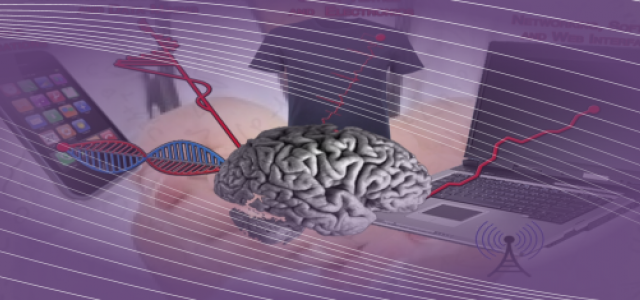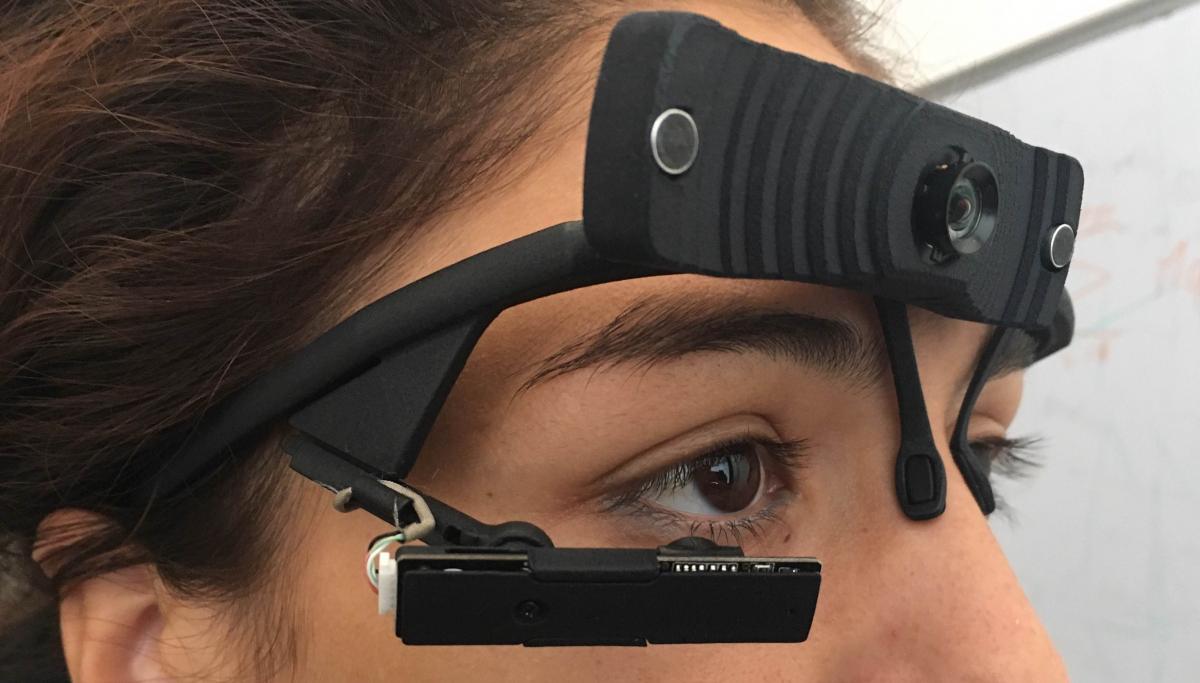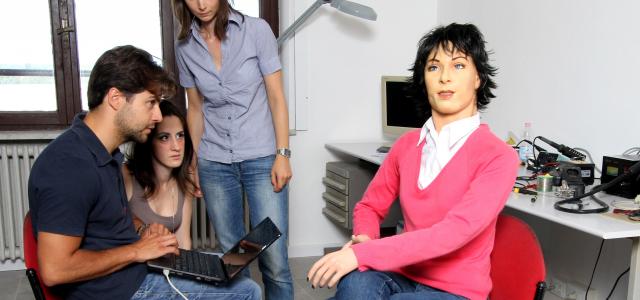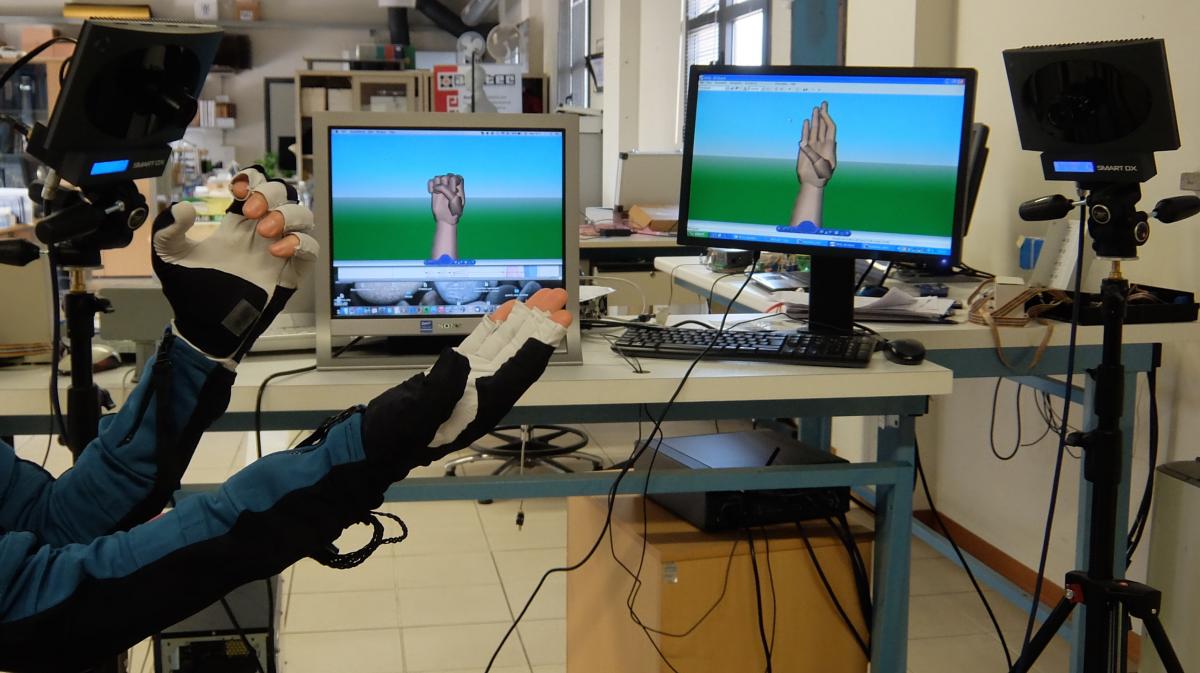Biomedical Engineering in Pisa has its roots in the Center. Multidisciplinary by its very nature, the research on Bioengineering is directed at studying, mimicking, and supporting the human body using dry and wet materials, sensing and actuation and intelligent wetware, software and hardware.The Center is also a hub for Biomedical Engineering students.
Research Topics
Artificial Senses and Artificial Muscles
The Center has a long research experience on chemical biosensing (i.e. immunosensors, electronic nose and tongue). The current projects are centered on artificial senses such as tactile, kinesthesia and vision. Moreover the Center has been focusing its long term interest on smart materials aimed at the development of artificial muscles for prosthetics and robotics. In this field, after having studied and developed ionic (gel, carbon nanotubes, conducting polymers) and electronic electroactive polymers, currently the main aim is focused on dielectric elastomers for their excellent performances in terms of elastic energy density, strain, mechanical compliance, fast response and for their lightweight, shock-tolerance and possible low cost.
Coordinator : Danilo De Rossi
Biofabrication
We have developed and patented several microfabrication techniques, including PAM (Pressure Assisted MicroSyringe), PAM2 (Piston Assisted Microsyringe),theintegrated PAM2 modular system and SOFT-MI (soft molecular imprinting). Other methods in use are lithography, ink-jet, microlaser ablation and sintering and single-screw extrusion.
Coordinator : Giovanni Vozzi

Neuro-cardiovascular Intelligence Lab
Biomedical Signal Processing research at Centre "E Piaggio" includes the investigation of advanced methodologies of statistical and nonlinear signal processing as applied to physiological signals and biological dynamics. Special focus is given to the study of cardiovascular and neural dynamics, also considering multivariate modeling and real-time techniques. Other fields of interest includes electrodermal activity processing, speech and electromyography processing, and cardio-respiratory coupling.
Coordinator: Gaetano Valenza

Computational Physiology & Biomedical Instruments
The research activities of the Computational Physiology & Biomedical Instruments group at centre "E Piaggio" are focused on the investigation physiological and pathophysiological dynamics through advanced bioengineering systems and signal processing methods. Applications include the assessment of autonomic nervous system activity on cardiovascular control, brain-heart interaction, affective computing, human-horse interaction, and assessment of mood and mental/neurological disorders. The group is also active in devising ad-hoc cutting-edge, advanced biomedical signal processing and artificial intelligence techniques, allowing for the application of machine learning algorithms to clinical and psychological assessments.
Coordinators: Enzo Pasquale Scilingo, Gaetano Valenza

Human Machine Social-Emotional Interaction
Can a machine express emotions? How people feel during interaction with robots or machines able to socially act like human beings? Our group uses a Life-like android and a pervasive observation platform to study what happens when human and machine establish empathic links.
Coordinators: Danilo De Rossi, Daniele Mazzei

ICT Monitoring for Human and Animals
This research focuses on the development of ICT systems for the monitoring of behavioral and physiological signs in humans and animals. Major activities include the development of wearable systems for physiological monitoring (ECG, respiration, movement activity, pulse-oximenter, pupillometry, etc.) based on textile electrodes, biosensors and lightweight cameras. Further research on eye-tracking and pupillometry, as well as smartwatches for physiological monitoring, and embedded computing programming are also exploited in applications including affective computing, mental health (with special focus on depression, bipolar dosrder), human-horse interaction, and pet physiological monitoring.
Coordinator: Enzo Pasquale Scilingo
Human-Relevant Models
The activities of the In Vitro Models Group are focused on the investigation of integrative physiology in-vitro through the development and study of physiologically relevant models of organs and multi-organ systems. Modular bioreactors, soft materials and soft assembly and 3D imaging, are the main tools employed in these studies. The Bioimaging research is centered on innovative integrated methods for quantitative imaging of brain and scaffold microarchitecture.
Coordinator : Arti Ahluwalia

Wearable Monitoring Systems
Wearable technologies- such as sensor embedded garments, are changing our lives becoming exoprostheses, able to augment our perception of reality with physical, social and emotional content. The areas of application of our research span from fashion and leisure, healthcare and emergency.
Coordinators: Danilo De Rossi, Alessandro Tognetti, Federico Lorussi


